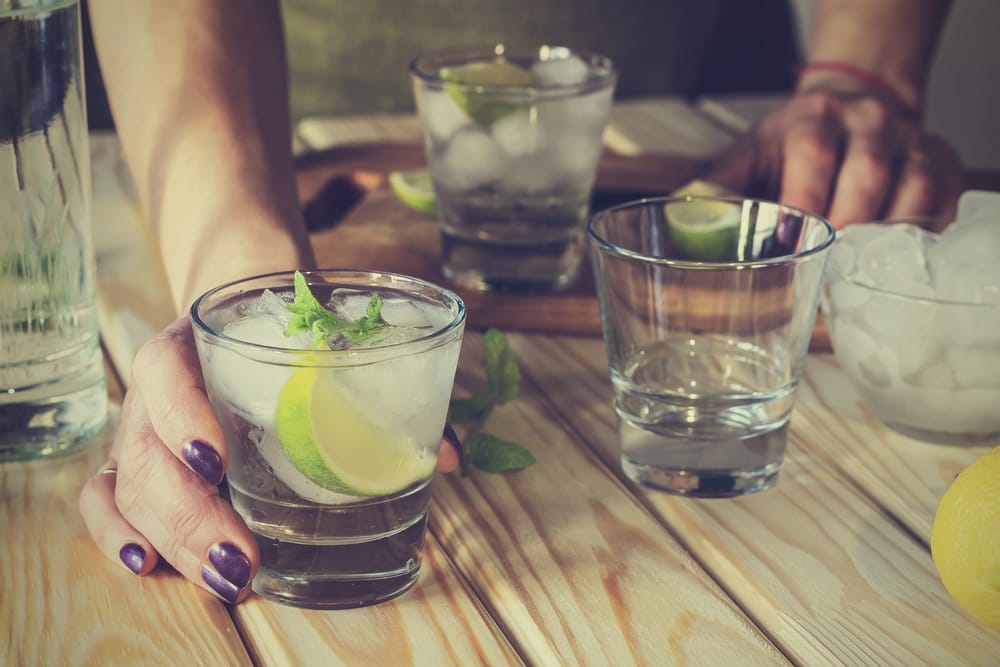Addiction Treatment
9 Warning Signs of Alcoholism

Written By:

Table of Contents
Drinking is so normalized in most every day social life that identifying alcoholism can be difficult. When faced with the question whether we or someone we love may have a drinking problem there are likely to be complications in answering “yes”. Denial, confusion, and rationalization might come into play. Many people make the argument that they drink because they want to, not because they have a dependence. Regardless, excessive alcohol intake is still a problem that affects our everyday lives and often requires alcohol addiction treatment. Look for these 9 warning signs of alcoholism that too much drinking has indeed turned into an a problem.
9 Warning Signs of Alcoholism

- Lying about or hiding your drinking – Problem drinkers are often secretive about their drinking habits. They may hide containers, lie about how often they drink, or take drastic measures not to drink in public. Some problem drinkers feel the need to drink prior to or during social events, which their peers may or may not notice.
- Drinking for relief – A glass of wine after a long bout of work isn’t of particular risk for most people. Using alcohol as a coping mechanism to deal with stress, depression, anxiety, or other emotional problems is risky. You’re likely to get caught in a cycle: Your health and relationships deteriorate as a result of your chronic alcohol use; the emotional issues from which you seek relief grow worse and worse; and you need more alcohol to compensate.
- Blacking out – If you can’t remember what happened the previous night, you drank too much. If this happens to you a lot, you drink too much. Yes, sometimes it happens by accident. Surveys show most college students experience a blackout at some point. If you desire and actively seek out that level of intoxication, you are putting yourself in physical danger as well as saturating your brain with an excessive amount of alcohol upon which it will develop a tolerance and a dependence.
- The inability to have just one drink. A big hint that someone has a predisposition to alcoholism is their compulsion to finish off any bottle or six pack that they open. Notice if the person is often volunteering to finish every one else’s drink they have left on the table. Not being able to stop once drinking has started is a key indicator.
- Drinking in dangerous situations – For an alcoholic, the safety of others will come second to the guarantee of their intoxication. He won’t be concerned about deadly vehicle collisions, putting children in dangerous situations, falls, or various other types of accidents. If you feel the need to drink even before performing an activity that should require mental clarity, you may want to recognize where your priorities have fallen and that you are putting others’ lives into danger.
- Neglecting responsibilities – Maybe you’re not risking your life. You always drive sober, and you’d never babysit your little sister while drunk. Beyond that, are your grades good and steady? Your job? Your extracurriculars? If you’re spending more time being drunk than studying, working, or being productive in general, you’re exhibiting one of the warning signs of alcoholism.
- A growing tolerance – As with any drug, our bodies adapt to the presence of alcohol more and more the longer we indulge. You need stronger drinks, or more of them, as time as goes on. Soon you’ll have cravings to be intoxicated all the time. When there is not alcohol in your body you experience symptoms of withdrawal.
- Withdrawal – Once the body has become dependent on alcohol in order to function normally, it will display signs of distress when alcohol is not present. Mental and physical symptoms of alcohol withdrawal include irritability, exhaustion, depression, nausea, anxiety, shakiness, trembling, and so on. In worst case scenarios, withdrawal symptoms can be life-threatening, including seizures and cardiac arrest.
- The inability to quit. You may not be ready to admit that you’re an alcoholic, or that your drinking is out of control, but you notice that every time you try to give up drinking, it doesn’t seem to last long. Furthermore, once you get going again it seems to get just as bad, if not worse, than it did last time. Eventually, you just can’t seem to stop anymore at all.
Getting Help for Alcoholism at a Quality Addiction Treatment Center
Alcoholism is not an easy thing to admit to. Shame and stigma face the alcoholic today. More and more, society is adjusting to celebrate the recovering individual and support the decision to get sober. If you identify with one or more of these warning signs of alcoholism, you don’t need to feel embarrassed. Be willing to make a change. Addiction treatment programs are available and ending your relationship with alcohol is possible. The last step in your alcoholism is the first step in your recovery. Contact The Last Resort: 512-750-6750.
